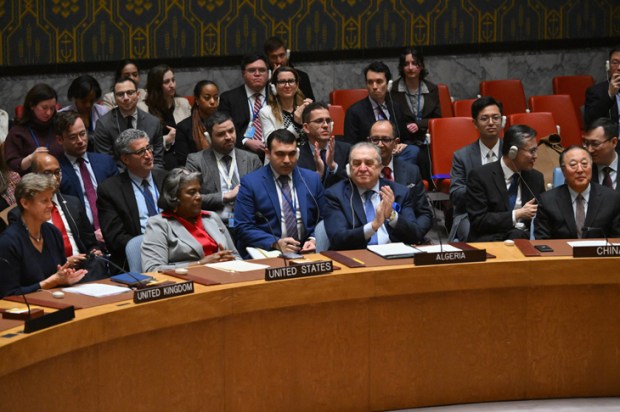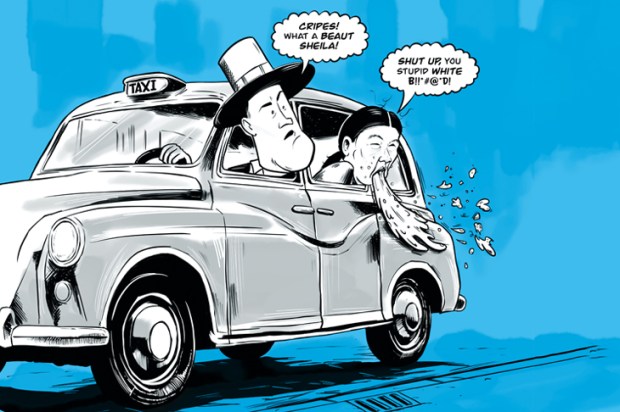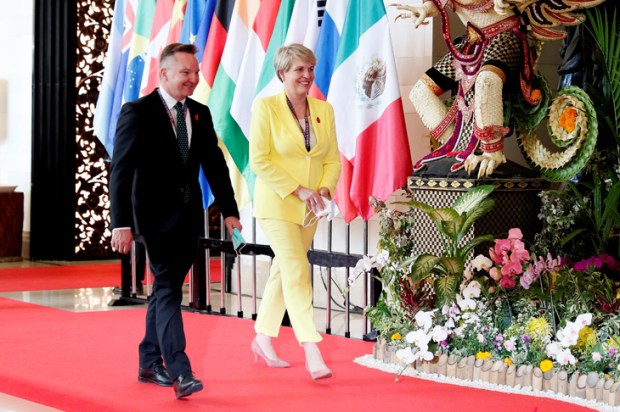Yes to free speech, no to racism. It should be a pretty simple formula but, of course, the devil is always in the details. Despite all the heat being generated by the debate surrounding proposed amendments to Sections 18C and D of the Racial Discrimination Act, with members of the government threatening to cross the floor and acres of newsprint devoted to commentary from both sides, this is actually one outcome that everybody agrees on. Overt bigotry, such as hate websites designed to inflame racial prejudices, sinister leaflets or articles vilifying religious or ethnic minorities, should be anathema to modern Australia. When promoting violence or hatred, such bigotry is illegal.
Jeremy Jones, director of the Australia/Israel & Jewish Affairs Council, is right to identify any number of examples where 18C and D have successfully and appropriately been used to shut down racially intimidating, abhorrent material. No right-minded person would disagree that for the most part the protections offered by the RDA in the two decades since being introduced by the Keating government have been for the good of our culturally diverse society.
And then along came Mordy Bromberg. The tragedy of the infamous Andrew Bolt case is twofold: it landed in the lap of a judge, an industrial relations silk and failed federal Labor pre-selection candidate, whose interpretations of the law have been criticised for apparently favouring the Left of politics; and News Ltd, in their limited wisdom, chose not to appeal the verdict. Thus, we are left with one sole, confusing interpretation of both 18C and D that sets the precedent that the tone in which an opinion is expressed has a legal impact upon its potential criminality.
According to Bromberg: ‘Even if I had been satisfied that the Section 18C conduct was capable of being fair comment, I would not have been satisfied that it was said or done by Mr Bolt reasonably and in good faith.’ Why not? Because of his ‘derisive tone, the provocative and inflammatory language and the inclusion of gratuitous asides.’ Or to put it another way, you have caused criminal offence, insult, humiliation and intimidation if the judge doesn’t care for the cut of your jib and doesn’t think your gags are particularly funny. This, of course, is not only crazy but dangerous.
John Roskam and the Institute of Public Affairs are to be applauded for their passionate advocacy of free speech, and for the way they have used the iniquity of the Bolt verdict to highlight the flaws in 18C and D. That Mr Bolt himself can now apparently be vilified on national television as a racist peddling extremist theories only serves to highlight the ‘Goody Proctor’ risk of allowing personal feelings to determine guilt or innocence.
The task facing Tony Abbott and George Brandis is delicate, but by no means unachievable. Certainly, ‘offence’, ‘insult’ and probably ‘humiliation’need to be removed from 18C. ‘Intimidation’ needs clarification. In Section 18D, ‘reasonably and in good faith’ must be replaced with a more robust and less subjective defence of freedom of expression.
Aunty’s conservative win
Who says the ABC are a bunch of childish lefties? In the past week they produced one of the finest conservative documentaries ever aired on Australian TV. To the amazement of many, our beloved Aunty ran what can only be described as a paean to Tony Abbott and a fitting celebration of a crucial landmark in our history.
We refer, of course, to the excellent 7.30 report of 17 March. It was modestly entitled ‘Towed Back’, although ‘The Triumph and Wisdom of Operation Sovereign Borders’ might have been more accurate. Delightfully understated, host Sarah Ferguson kicked off the show by informing viewers: ‘There is little doubt [the policy] is working. It’s been 88 days since the last successful people-smuggling venture.’ She then obliquely referred to how important secrecy has been to the Coalition’s success in stopping boats. The film documented how carefully, humanely and professionally the Australian navy perform their task of towing boats back to Indonesia, before introducing viewers to the brutally honest and informative Arash Sedigh.
Mr Sedigh, a self-described economic refugee from Iran, pointed out that having been turned down by our skilled migration programme, he chose to come here illegally instead. Fluent in English profanities, he kindly explained how much he would like to kill Australians who thwarted his desires as well as suggesting we deserve to suffer a bloody terrorist attack for denying him his wishes.
It’s hard to imagine a more timely, insightful, thought-provoking and cautionary documentary, even if we’d made it ourselves.
Got something to add? Join the discussion and comment below.
Get 10 issues for just $10
Subscribe to The Spectator Australia today for the next 10 magazine issues, plus full online access, for just $10.
You might disagree with half of it, but you’ll enjoy reading all of it. Try your first month for free, then just $2 a week for the remainder of your first year.














Comments
Don't miss out
Join the conversation with other Spectator Australia readers. Subscribe to leave a comment.
SUBSCRIBEAlready a subscriber? Log in